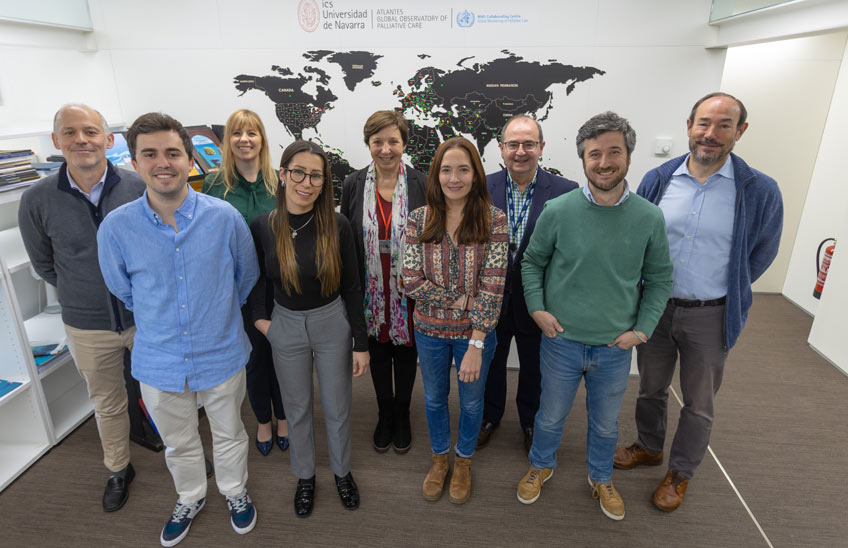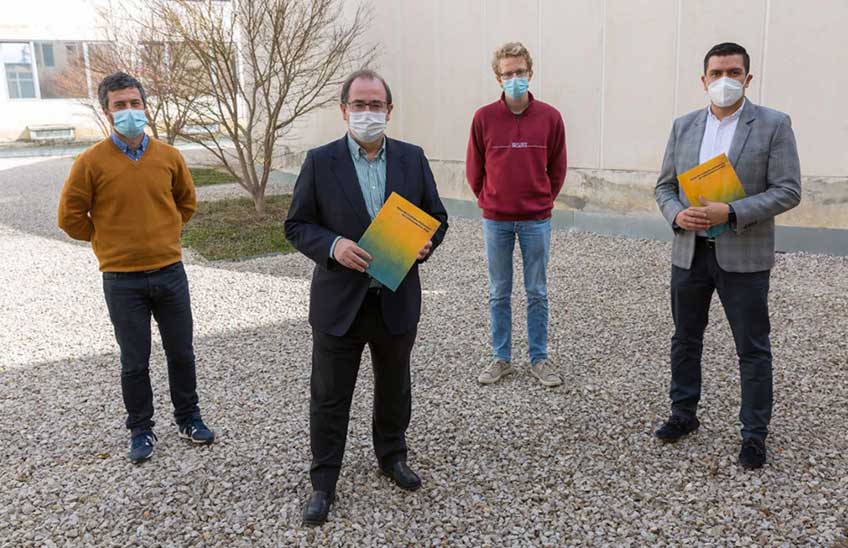Nearly 3 million people require palliative care each year in the Americas but only 10 countries include it as a guaranteed service
The 'Atlas of Palliative Care in the Americas 2025', developed by the Global Palliative Care Observatory ATLANTES, has analyzed 35 countries.

31 | 10 | 2025
Approximately 2,984,970 people require palliative care each year in the Americas but only 10 countries (28.5%) include it as a service guaranteed by law in primary care. This has been detected by the 'Atlas of Palliative Care in the Americas 2025' developed by the Global Palliative Care Observatory ATLANTES of the Institute for Culture and Society (ICS) of the University of Navarra, which has evaluated the development of palliative care in the 35 countries of the continent. This report was carried out with the partnership of the Latin American Palliative Careassociation (ALCP), the Worldwide Hospice Palliative Care Alliance (WHPCA) and the International Association for Hospice and Palliative Care (IAHPC) and was presented this Friday, October 31, during the II Summit of Latin American National Associations for Palliative Care 2025.
The Atlas is the first to analyze, through the World Health Organization's development indicators, the state of palliative care throughout the continent, showing a region marked by both progress and persistent inequalities. According to the researchers, although some countries have made progress in the integration and development of palliative care, many lack strong policies, services, training and medicines, especially in primary care and rural areas.
The Atlas has identified 10,526 specialized palliative care services (2,865 in Latin America and 7,627 in North America), average of 0.33 per 100,000 inhabitants, when international recommendations are 2 services per 100,000 inhabitants. Only Chile, Costa Rica, the United States and Uruguay exceed this recommendation. Furthermore, the coverage of pediatric palliative care is limited since only 22 of the 35 countries in the region report specific services (375 in total), most of them in hospitals and without national integration.
In terms of opioid consumption, there are marked differences between countries and between urban and rural areas. Drug consumption varies from 17 defined daily doses of morphine per million inhabitants in Venezuela to 18,178 in the United States. Only eight countries offer essential drugs in urban primary care centers and five countries guarantee immediate-release oral morphine at this level. In Peru, Ecuador and El Salvador, there is no access to liquid oral morphine.
training and legislation
Researchers warn that medical Education in palliative care is insufficient: in 20 of the 35 countries medical students do not receive mandatory training in palliative care. Although some countries include palliative care in other disciplines, the scope remains limited. Likewise, 13 countries offer official medical specialization in palliative care and six others grant diplomas or certifications with official recognition. Uruguay, El Salvador and Costa Rica stand out for including training for interdisciplinary teams.
On the other hand, scientificresearch in this area is scarce. Fifteen countries hold specific national congresses at least every three years and only Canada and the United States report a "very high" scientific production.
With regard to the regulatory framework , as indicated above, 10 countries guarantee palliative care coverage at the primary level with a General Health Law. Fourteen countries have national palliative laws or strategies and another 19 include palliative care in other regulatory health plans, such as cancer, for example. In addition, only Chile, Uruguay and the United States have national Advance Care Planning policies. Five other countries, such as Uruguay and Chile, have a defined technical authority within the Ministry of Health to coordinate palliative care.
In contrast, there is good community and civil society participation in the promotion of palliative care: more than 30 countries report community participation actions and there are active national associations in 23 countries that lead training, awareness and advocacy processes.
The Atlas has detected striking disparities in the development palliative care in the region, reflecting the economic, cultural and political diversity of the Americas. Structural and political barriers continue to limit equitable access to palliative care across the continent. However, experts point out that this diversity can also be an opportunity: by taking advantage of comparative assessment and regional cooperation, countries can learn from the most successful and relevant examples in their context. Highlighting scalable and transferable models - from systems with both high and low resources - will help guide and adapt strategies for other places, fostering equity in the region through shared learning.



